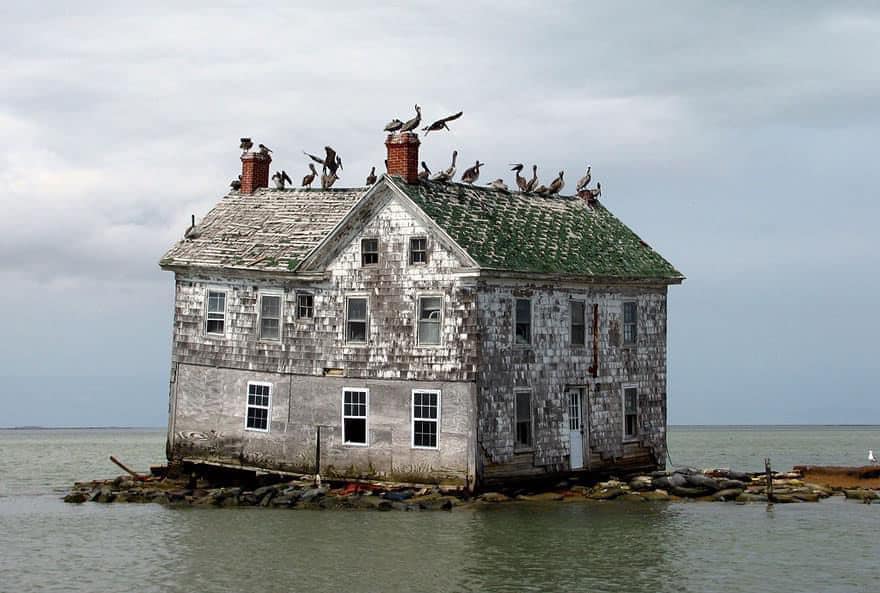Holland Island, tracing its roots back to the 1600s, bore witness to centuries of vibrant community life, evolving from a modest settlement into one of the largest inhabited islands in the Chesapeake Bay by 1910. Its picturesque landscape was dotted with 70 homes, stores, a post office, school, church, and more, serving as a testament to the resilience and prosperity of the island’s fishing and farming families.

The islanders thrived on the bounty of the bay, relying on oyster dredging, shad fishing, and crabbing as their primary sources of livelihood. A bustling fleet of 41 skipjacks, 10 schooners, and 36 bugeyes facilitated these maritime activities, creating a lively and industrious atmosphere. Holland Island became a hub of community life, tightly knit by the shared pursuits of its residents.

However, the island’s fortunes took a turn for the worse in 1914 when severe erosion began to consume the west side. Faced with the imminent threat of losing their homes to the relentless forces of nature, the inhabitants made the difficult decision to relocate to the mainland. They painstakingly dismantled their structures, leaving behind a once-thriving community that had been the heartbeat of Chesapeake Bay life.

Despite attempts to fortify the island with stone walls, nature proved formidable, and the last family bid farewell in 1918 after a tropical storm damaged the church irreparably. Some residents clung to the island during fishing seasons until 1922 when the final remnant of their community, the church, was transported to Fairmount, Maryland.In the aftermath of the exodus, Stephen White, a dedicated minister, assumed the responsibility of preserving the island’s memory. He founded The Holland Island Preservation Foundation, striving to keep alive the rich history and heritage of the once-flourishing community

As the years passed, the island changed hands, eventually being sold to the Concorde Foundation in 2010. Later that same year, the last standing house, a relic from 1888, succumbed to the relentless forces of erosion and time, collapsing into the waters that had defined the island’s existence. With its demise, the final chapter of Holland Island’s history was written, leaving only memories and remnants as echoes of an era that had come to an end.

